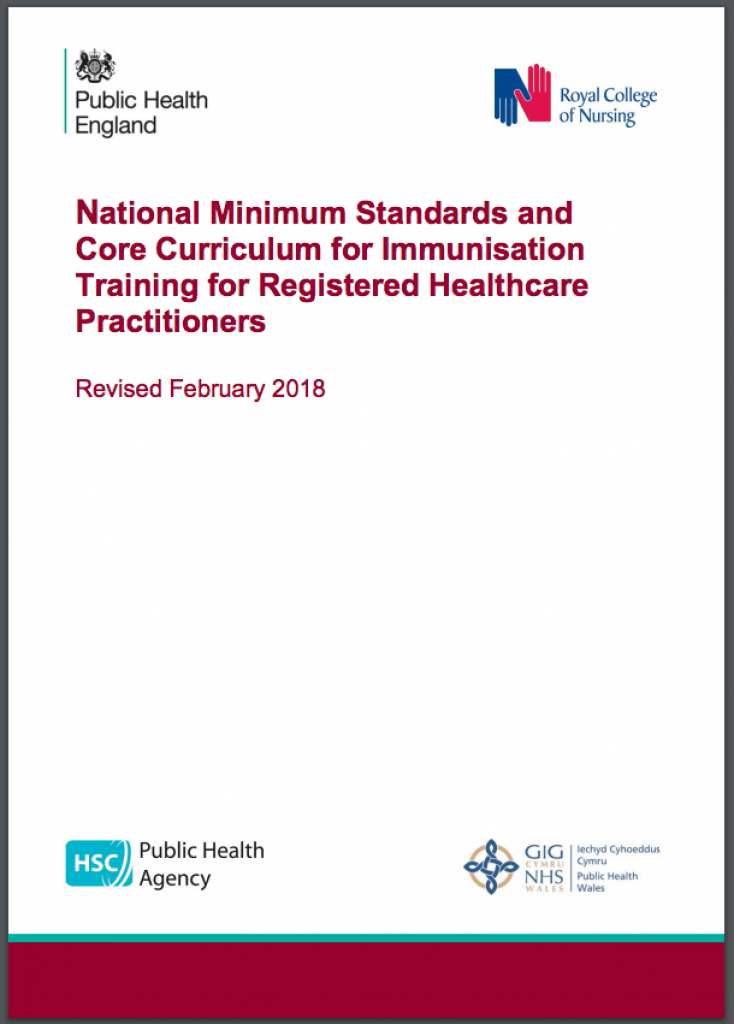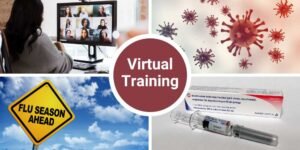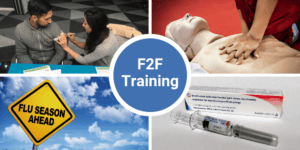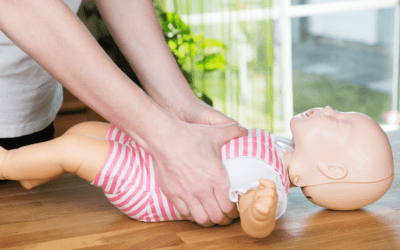What flu training do your immunisation staff need?
Welcome to the second part of our ‘what you need to know about the National Minimum Standards’ series. Today we will explain as clearly as possible the specific immunisation training pathways that each of you and/or your registered staff will be required to do in order to be compliant with the National Minimum Standards and Core Curriculum for Immunisation Training for Registered Healthcare Practitioners document, and therefore be competent to safely and effectively promote and administer flu vaccinations or any other vaccinations.
A summary of the training requirements

The Standards document clearly states that any registered healthcare practitioner who advises on and/or administers immunisations, must have received specific relevant foundation training and have been assessed as competent by a registered practitioner who is experienced, up to date and competent in immunisation. They should only administer and/or advise on immunisations if they feel competent to do so.
What training do your immunisation staff need?
The Standards document clearly states that any registered healthcare practitioner who advises on and/or administers immunisations, must have received specific relevant foundation training and have been assessed as competent by a registered practitioner who is experienced, up to date and competent in immunisation. They should only administer and/or advise on immunisations if they feel competent to do so.

What training should those practitioners who are new to immunisation receive?
Those new to immunisation should receive comprehensive foundation immunisation training. The recommended minimum duration relates to those advising on or administering the routine national schedule and should be two days for a taught course or 10 hours of e-learning. Training for practitioners who only administer specific vaccines, can be tailored to their needs and may therefore be shorter in duration.
The content of foundation training should include the following topics:
- The aims of immunisation, national vaccine policy and schedules
- The immune response to vaccines and how vaccines work
- Vaccine preventable diseases (for Flu this must include the Flu vaccine products’ specific information)
- The different types of vaccines, their composition and the indications and contraindications
- Current issues in immunisation
- Communicating with patients, parents and carers about vaccines
- Legal issues in immunisation
- Storage and handling of vaccines
- Correct administration of vaccines
- Anaphylaxis and adverse reactions
- Documentation, record keeping and reporting
- Strategies for optimising immunisation uptake

What update training should immunising practitioners receive?
Immunising healthcare practitioners should receive at least annual updates, however, more frequent updates will be required if substantial changes to programmes, policies or vaccines occur. To include all necessary information, update training is likely to need a minimum of half a day for those delivering the routine national immunisation schedule. To be specific about flu vaccines there would have to be dedicated information about those flu vaccine products for the coming flu season.
The content of annual update training should include the following topics:
- Current issues in immunisation
- Recent epidemiology of vaccine preventable disease
- Any changes to vaccine recommendations or national policy
- Update on vaccine ordering, storage and administration
- Any changes to legislation relevant to vaccination
- Review of current practice, recent vaccine incidents and identification of areas for improvement
- Q&A session for problems encountered in practice
What about Basic Life Support and Anaphylaxis?

The standards document states that specific training in Basic Life Support and Anaphylaxis recognition and management, should also be undertaken annually or as per employer’s stipulations. Health Academy would like to also point out that the Resus Council UK Quality Standards: Primary care state that Clinical staff in primary care settings should have at least annual updates which should be practical in nature.
Are there any other training requirements?
At local level there may be further training required before staff are able to vaccinate depending on the nature of their current work. For example, Safeguarding training will be required for those who have not already completed it and there may be a local sharps disposal training relevant to your organisation.
We have included your Free Training Pathways flow chart below which you can download, print and attach to your staff notice board for future reference.
At Health Academy we have a range of Flu training courses which fit perfectly into the training pathway! These are delivered in ways to suit the needs of all practitioners, from those who wish to take an e-learning only course, right through to those who want a good old fashioned hands-on face to face practical course. Our practical workshop also includes basic life support and anaphylaxis and has a new immunisers e-learning add-on so you can gain compliance with your training requirement all though one purchase!
Visit our dedicated Flu Hub now to explore all of this year’s flu options.

Already know what your staff need? Why not jump straight to it?
Part III
Join us again next week for Part III of the series when we will examine the training standards for healthcare support workers (HCSWs) and how the administration of immunisation differs for this group of practitioners.







